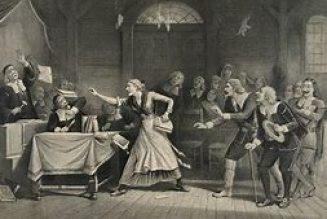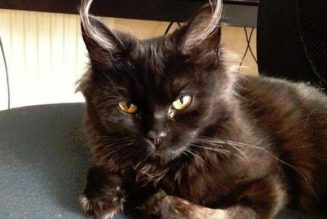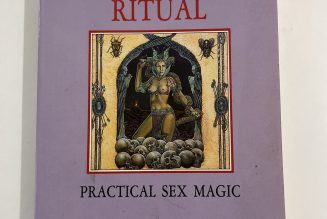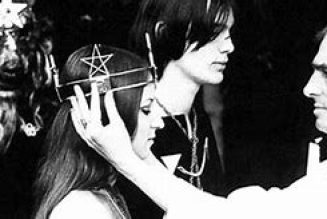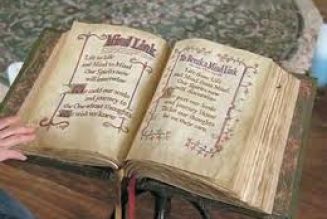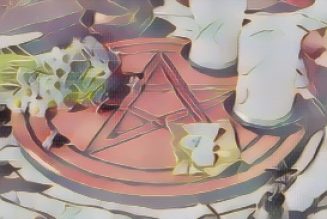Fairy Witch of Clonmel (1894)
A young woman named Bridget Cleary, of Clonmel, County Tipperary, who was tortured and burned to death because her husband believed the fairies had spirited her away and substituted in her place a witch changeling.
Changelings are sickly fairy infants that fairies leave in the place of the human babies they are said to kidnap.
However, many stories exist of fairies kidnapping mortal men and women—especially women—to be spouses of fairies in Fairyland.
Sometime in March 1894 Michael Cleary, a man who may have suffered from mental disturbances, began to think something was strange about his 26-year-old wife, Bridget.
She seemed more refined.
She suddenly appeared to be two inches taller.
Cleary, whose mother had acknowledged going off with fairies, immediately suspected foul play by the “little people.”
He confronted his wife and accused her of being a changeling.
When she denied it, he began to torture her with the help of three of her cousins, James, Patrick and Michael Kennedy; her father, Patrick Boland; her aunt, Mary Kennedy; and two local men named John Dunne and William Ahearne.
The townsfolk of Clonmel noticed that Bridget was missing for several days.
Hearing that Bridget was sick, a neighbor, Johanna Burke, tried to pay a visit but found the door to the house barred.
She encountered William Simpson and his wife, neighbors who also were attempting to pay a visit but were not admitted to the house.
The three looked in a window and eventually convinced Cleary to let them in.
The neighbors were aghast to see Bridget, clad only in nightclothes, held spread-eagled on the bed by the Kennedy boys and Dunne, while Boland, Ahearne and Mark Kennedy looked on.
Michael Cleary was attempting to coerce his wife into drinking a mixture of milk and herbs (probably a fairy antidote), saying,
“Take it, you witch.”
Cleary repeatedly asked her, “Are you Bridget Boland, wife of Michael Cleary, in the name of God?”
Bridget kept crying, “Yes, yes,” but Cleary did not seem to believe her.
Dunne suggested holding her over the kitchen fire, which Cleary and Patrick Kennedy did, while Bridget writhed and screamed and begged the visitors in vain for help.
In fairy lore, setting fire to someone is considered a failproof way to expose changelings and induce the fairy parents to return the stolen human.
Bridget continued to insist that she was Bridget Boland, wife of Michael Cleary and finally was put to bed.
Everyone except Cleary seemed satisfied that Bridget was not a witch changeling.
The next day, Cleary approached William Simpson and asked to borrow a revolver, explaining that Bridget was with the fairies at Kylegranaugh Hill, a fairy fort, and he was going to go “have it out with them.”
Cleary also claimed that Bridget would ride up to the house at midnight on a big gray horse, bound with fairy ropes, which had to be cut before she could return as a mortal.
Simpson told Cleary he had no revolver.
Later, he saw Cleary heading for Kylegranaugh Hill, carrying a big knife.
That night, Johanna Burke returned to the Cleary house to find Bridget sitting by the fire talking to Boland, Cleary and Patrick Burke, Johanna’s brother.
Cleary flung his wife to the ground and forced her to eat bread and jam and drink tea—fairies do not have to eat mortal food— and threatened her with more punishment if she did not.
He again demanded to know her true identity, and she insisted she was Bridget, not a witch changeling.
Cleary’s rage increased.
He tore off her clothes and grabbed a hot brand from the fire and held it up to her mouth.
He refused to let anyone out of the house until he got his wife back.
Then he threw lamp oil over Bridget and set her afire.
Later Burke described what happened:
She lay writhing and burning in the hearth, and the house was full of smoke and smell . . . she turned to me and screamed out, “Oh Han, Han.” . . . When I came down Bridget was still lying on the hearth, smoldering and dead.
Her legs were blackened and contracted with the fire.
Michale, Cleary screamed out, “She is burning now, but God knows I did not mean to do it.
I may thank Jack Dunne for all of it.”
Cleary and Patrick Burke put Bridget’s remains in a sack and buried them in a shallow grave about a quarter of a mile away.
The remains, with the legs, abdomen, part of the back and the left hand nearly burned away, were found on March 22.
Witnesses came forward. Cleary, Boland, the Kennedy boys and aunt, Ahearne and Dunne were charged with willful murder.
In the investigation, two more men were charged: William Kennedy, another cousin, and Dennis Ganey, an herb doctor.
The trial lasted two weeks.
A jury found all defendants guilty of manslaughter, a lesser charge, and the judge sentenced all to jail.
Cleary received the harshest sentence: 20 years of hard labor.
Even as he was sentenced, he still believed the fairies had stolen his wife and left a changeling witch in her place








